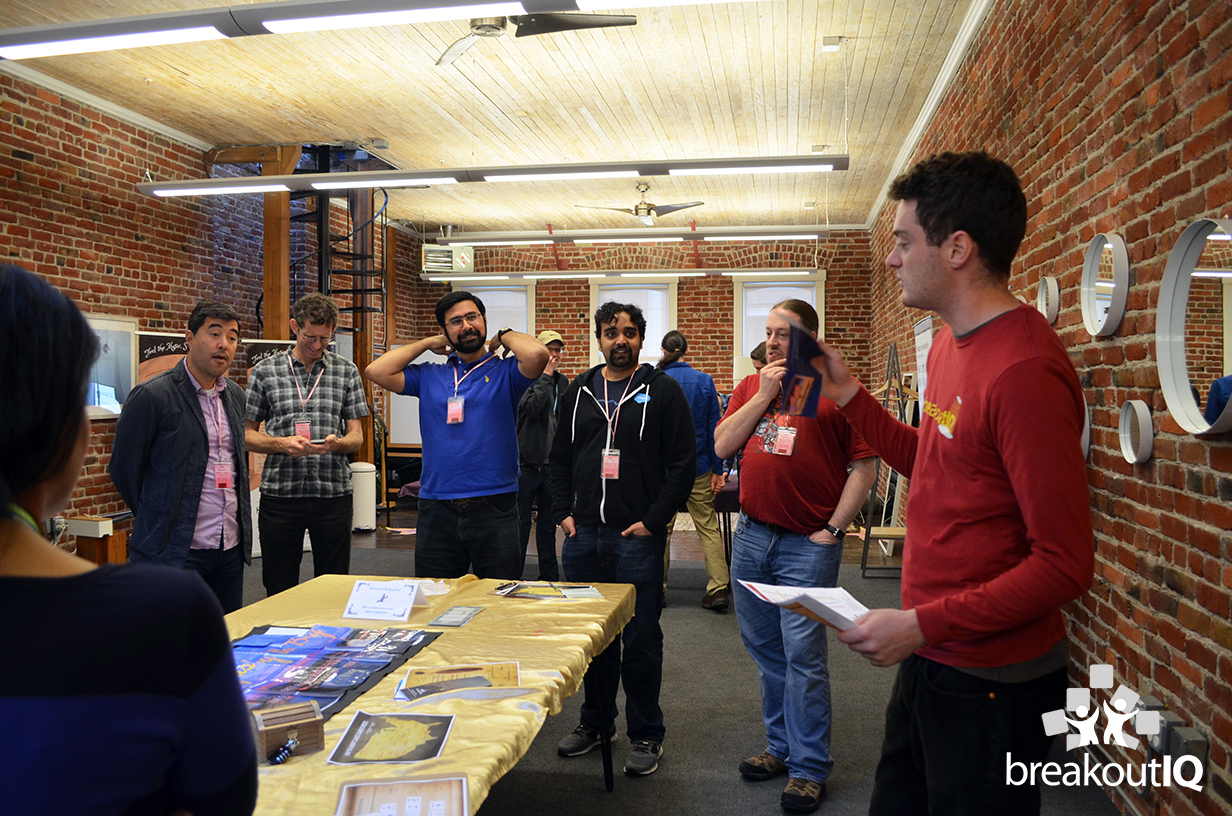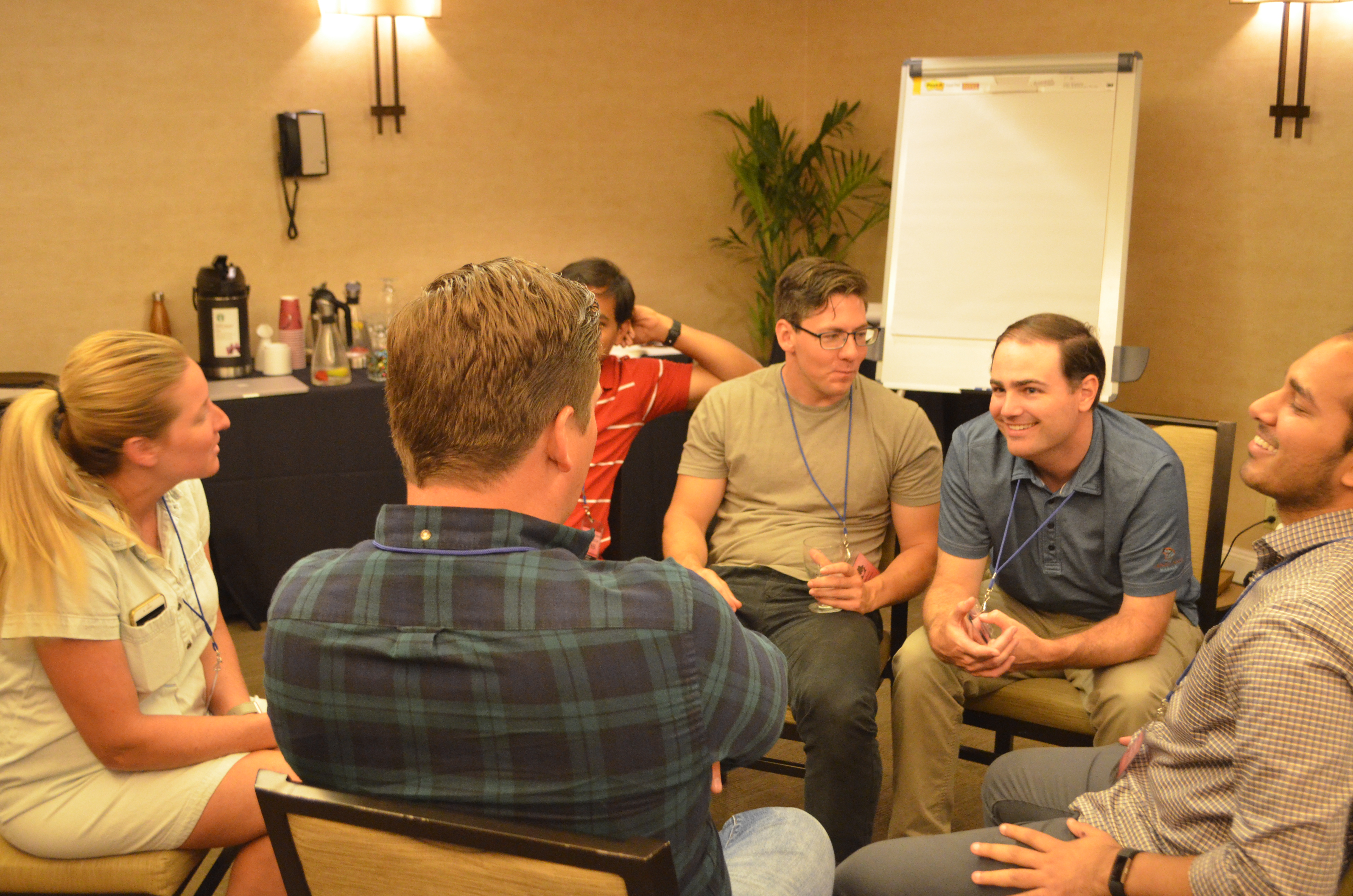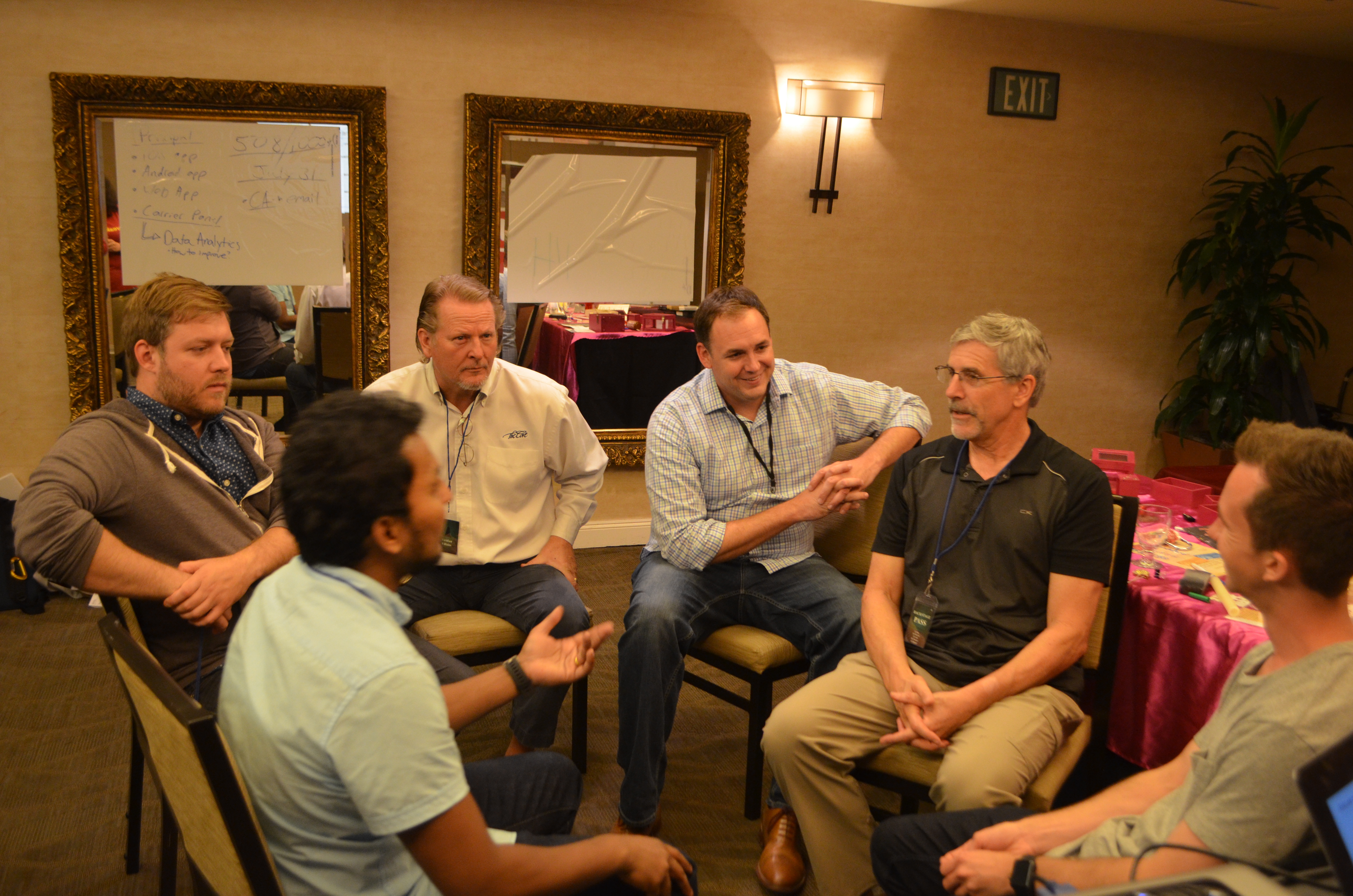
Why Add a Learning Workshop To Your BreakoutIQ Activity?
Table of Contents
How Do We Learn?
We learn in a myriad of different ways, and at BreakoutIQ we are most interested in experiential learning models. One influential model – Kolb’s learning cycle – describes effective learning as a person progressing through at least four stages. First there is a concrete experience. Then, this experience is then reflected upon and, through analysis, generalizable conclusions are made. Finally, these conclusions can be applied to future situations.
All of BreakoutIQ’s games are designed to provide an engaging and challenging direct experience (step 1 of the learning cycle!) that highlights team dynamics and creative problem solving. On their own, these activities can help generate some interesting takeaways. Our optional post activity debrief offers an opportunity to more deliberately focus on the remaining three stages of the cycle – reflection, conclusion, and application.
Why Book An Activity And Workshop With BreakoutIQ?
By providing a structured, designated time for reflection, our activity debriefs enhance the learning and integration of each experience. Good facilitators can guide the conversation, prompt participants to look at different facets of the experience, and spark new and novel connections, all while keeping the environment both positive and productive.
Adding a BreakoutIQ debrief workshop to your event is an easy, accessible way to enhance your activity without adding work for yourself. It serves as a seamless, integrated part of the experience. Beyond that, our facilitators are able to take note of dynamics occurring in-game. As of June 2019, our facilitators have seen over 600 groups go through these same puzzles. As such, they are uniquely able to provide perspective, draw out interesting moments, and tie together the discussion with the experience of the game.
What’s In Our Debrief Workshop?
 1. The first thing we do is introduce ourselves, the activity, and our goals for the day.
1. The first thing we do is introduce ourselves, the activity, and our goals for the day.
In a 2-minute warm-up activity, we demonstrate the power of experiential learning and introduce themes of awareness, vulnerability, group process and reflection. This sets expectations and primes participants toward greater awareness as they play and provides a stronger foundation for discussion after the event.
2. After the game, we circle back as a group
First, we open the floor for an overall check in. This offers anyone a chance to bring up something pertinent or interesting to them right away. There is no right or wrong, and the open floor allows an entry point for more conversation.
In this section, we also ask volunteers to provide deeper examples of emotional moments during the game. When did you experience success, frustration, appreciation? Depending on the groups’ needs, we are able to expand the conversation into themes of emotional intelligence and awareness, or allow it to serve on its own, by grounding the rest of the conversation in safety and empathy.
3. Next, the core discussion is structured as a collaborative group activity.
Our current standard debrief is scaffolded around four team functions that we often observe in each of our games: organizing, doing, lifting and challenging. These four categories provide a basis for multifaceted group discussion and tie directly back to workplace topics like team strategy, role tendencies, and communication styles.
Facilitators often ask questions including but not limited to:
- What makes organizing difficult in a chaotic environment like an escape room – or your workplace? How did your team organize? What similarities in strategy/approach were seen in more successful teams?
- Name some moments when a teammate helped you out. Is it easier to appreciate teammates than it is to appreciate yourself? Did you thank them in the moment or take their support for granted? How can you remember to integrate gratitude into your work life?
- What were some times when you or a teammate challenged another viewpoint? How did they deliver their opinion? How was it received? In what ways can opposing ideas be useful and necessary to creative thought and effective problem solving?
Given these prompts, teams break out and write down answers together, and then we collect responses and read out similarities, unique answers, and ask for comments in the larger group setting. This format allows for deeper introspection at the individual and team levels while maintaining the cohesion and perspective that comes from coming back to the larger group context.
Overall, this section is meant to be the longest and most comprehensive. It allows teams to work through a variety of topics, while providing facilitators the flexibility to explore areas that are relevant to a particular group.
Additional themes we can append or integrate to any discussion:
- Individual roles and team dynamics

- Group strategy and delegation
- Mindfulness and awareness of others
- Gratitude and appreciation
- Diversity and inclusion
- Leadership styles
4. A dedicated activity highlights useful insights for work and life
At the end of the debrief workshop, participants are asked to find a partner in the room who was on a different team. Each pair is given handouts and directed to ask each other a series of questions and record one another’s answers. Together they identify one key takeaway from the day and strategize on how to act upon that learning in the future.
Asking these questions gives meaning and purpose to the day’s activities and discussion. By having partners ask questions and record each other’s verbal responses, participants not only practice being vulnerable, open and honest with one another, but they are also freed from the censorship that writing for oneself often imposes. Participants discover unexpected clarity and useful answers during this part of the activity.
Finally, having had participants identify their takeaways, we wrap up the experience by bringing the group back together for a closing activity. This activity harks back to the warm up and provides movement, laughter, and a final shared experience before we take a group picture and thank everyone for joining us that day.
Interested in an activity based workshop for your team?
Here at BreakoutIQ, our number one goal is to provide a fun and engaging experience for you and your team. 90% of our clients want just that – a good time – but many also want to take the day one step further. If you’re interested in maximizing your team’s experience by harvesting and integrating learning, there’s no better way than adding a BreakoutIQ debrief to your next team-building activity.
Our debrief workshop is a great addition to any of our activities, including escape rooms, scavenger hunts, and custom trivia activities. If you’re interested in booking an event with us, please visit our “Contact Us” page using the button on the top of your screen
We hope you’ll join us soon!
